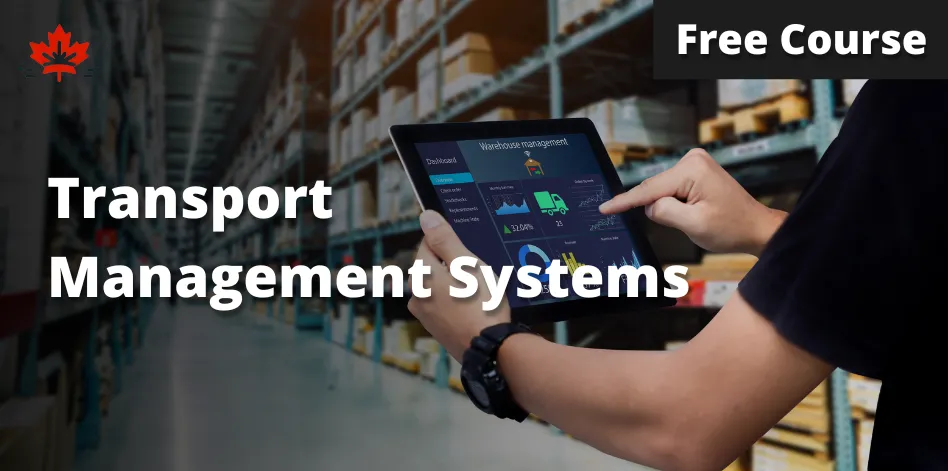Today, we’re excited to dive into our Free Transport Management Systems Course, an invaluable resource for anyone looking to streamline their supply chain operations. This course is meticulously designed to equip you with the knowledge and tools necessary to navigate the complexities of modern transportation management.
Embark on a journey through the intricacies of planning, execution, and optimization of goods movement. Our comprehensive curriculum covers everything from basic concepts to advanced strategies in transport management, all at no cost. This is your golden ticket to mastering transportation logistics and transforming the way you handle shipments, deliveries, and overall fleet management.
Mastering Logistics: Your Pathway to Proficiency with a Free Transport Management Systems Course
In the ever-evolving landscape of global business, efficient logistics management stands as a cornerstone of success. Understanding the intricacies of Transport Management Systems (TMS) is no longer a luxury but a necessity for those aspiring to excel in supply chain management and logistics. Consequently, a free Transport Management Systems course can be a game-changer, providing valuable insights and practical knowledge without the obstacle of cost.
For individuals seeking to enhance their skill set and gain a competitive edge in the logistics domain, such a free course can serve as an ideal starting point or a means to sharpen existing expertise. Delving into the core concepts of TMS, the course may cover crucial topics such as shipment planning and execution, freight consolidation, and rate negotiation, as well as offering an overview of the latest software solutions that drive efficiency in transportation logistics.
Emphasizing hands-on learning, a comprehensive free TMS course might include case studies, real-world scenarios, and interactive sessions aimed at fostering a deep understanding of how to effectively manage transportation resources. Whether you are a recent graduate or a seasoned professional, this course aims to equip you with the tools required to streamline logistics operations, optimize supply chain processes, and ultimately contribute to the bottom line of any business engaged in the movement of goods.
As one delves deeper into the curriculum, the importance of data analysis and decision-making skills will become apparent, highlighting the role of TMS in making informed choices that minimize costs and improve service levels. With the knowledge gained from a robust free TMS course, participants will be poised to tackle the challenges of logistics strategy and implementation in the digital age.
Understanding the Core Components of Transport Management Systems
A Transport Management System (TMS) is a critical backbone in the logistics and transportation industry, designed to streamline the shipping process.
A free TMS course would typically cover the basics of what these systems entail. For instance, it would delve into the core components such as route planning and optimization, load optimization, freight audit and payment, order visibility, carrier management, and more. Route planning ensures that goods are delivered in the most efficient manner possible, saving time and reducing fuel consumption.
Load optimization involves arranging goods in a way that maximizes the use of space, whereas freight audit and payment solutions help in managing costs and avoiding billing errors. Order visibility is crucial for tracking shipments and providing real-time updates to customers. Effective carrier management includes selecting the right carriers and negotiating contracts to ensure cost-effectiveness and reliability in deliveries.
Leveraging TMS for Improved Supply Chain Efficiency
One of the major advantages of implementing a TMS is the substantial increase in supply chain efficiency. A free course on this subject might illustrate how professionals can leverage technology to improve various aspects of their operations.
It would explore topics like automation of routine tasks, which reduces the likelihood of human error and frees up resources for more strategic activities. Participants will learn about the significance of data analytics in forecasting demand, optimizing inventory levels, and making informed decisions based on real-time information.
The course could also teach the best practices for integrating a TMS with existing Enterprise Resource Planning (ERP) systems or Warehouse Management Systems (WMS) to create a cohesive and fully optimized supply chain infrastructure.
Exploring the Impact of Emerging Technologies on TMS
The landscape of transportation management is constantly evolving with the introduction of emerging technologies.
In a free TMS course, students would explore how innovations like the Internet of Things (IoT), artificial intelligence (AI), machine learning, and blockchain are revolutionizing the industry. IoT, for instance, enhances real-time asset tracking and monitoring, while AI and machine learning algorithms can predict disruptions and automate corrective actions.
Blockchain technology offers unprecedented levels of transparency and security in transportation logistics, facilitating trust among all parties involved. By understanding these technologies, students can anticipate future trends and prepare for the impact they’ll have on global supply chains.
